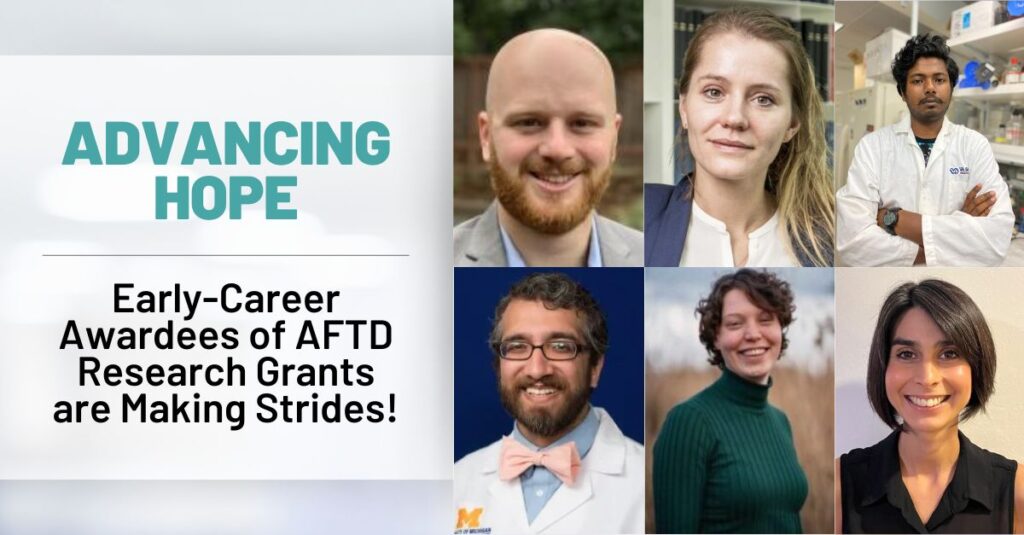Advancing Hope: Early-Career Awardees of AFTD Research Grants are Making Strides!

Did you know that AFTD currently has six active research grant programs funding FTD research at all stages, from discovery research to clinical trials? Three of these programs are focused on early-career researchers, supporting career transitions that sustain future work in FTD.
We wanted to share a flurry of recent research publications authored by early-career grantees supported by AFTD and partner funding. While the primary author on each of these publications is an AFTD awardee, these are all collaborative efforts including large teams of researchers.
Rowan Saloner, PhD, recipient of the 2024 Clinical Research Training Scholarship in FTD, published a study in May in Nature Aging looking at proteins in spinal fluid from people with FTD to identify patterns that indicate FTD presence or future severity.
Eline Bunnik, PhD, and her graduate student Charlotte Graafland published a study in May in Alzheimer’s Research and Therapy supported by a Well-Being in FTD Pilot Grant. The team explored the impacts of disclosing biomarker results that might predict FTD onset to people who may be at risk of developing genetic FTD as part of their participation in clinical studies, or future clinical trials. The team interviewed people with known risk, and people who had not learned their genetic status, to explore the perceived benefits and concerns with receiving these results.
Suborno Jati, PhD, recipient of a 2023 Holloway Postdoctoral Fellowship, published a study in May in Nature Communications on chromogranin A, a protein that regulates hormones and inflammation and has previously been linked with neurodegeneration. This study tested the role of chromogranin A in a laboratory model of tau aggregation, which occurs in some forms of FTD, to see if it appeared to be involved in disease mechanisms.
Tanav Popli, MD, recipient of the 2023 Clinical Research Training Scholarship in FTD, published a study in May in Alzheimer’s & Dementia. The study investigated the protein pathology in brain tissue of people who had been diagnosed with progressive supranuclear Palsy to see what percentage of the diagnoses were accurate and how often other protein pathologies were found.
Indira García-Cordero, PhD, recipient of the 2022 Clinical Research Training Scholarship in FTD, published a study in July in Alzheimer’s & Dementia. The study explored cognitive impairment, a sometimes-overlooked symptom in progressive supranuclear palsy, to see if it could predict disease progression.
AFTD is thankful to our generous donors and funding partners who make our early-career funding programs possible. The AFTD Holloway Postdoctoral Fellowships are supported entirely by the Holloway Family Fund. The Clinical Research Training Scholarship in FTD is supported by both the Holloway Family Fund and the American Brain Foundation, in collaboration with the American Academy of Neurology.
By Category
Our Newsletters
Stay Informed
Sign up now and stay on top of the latest with our newsletter, event alerts, and more…

